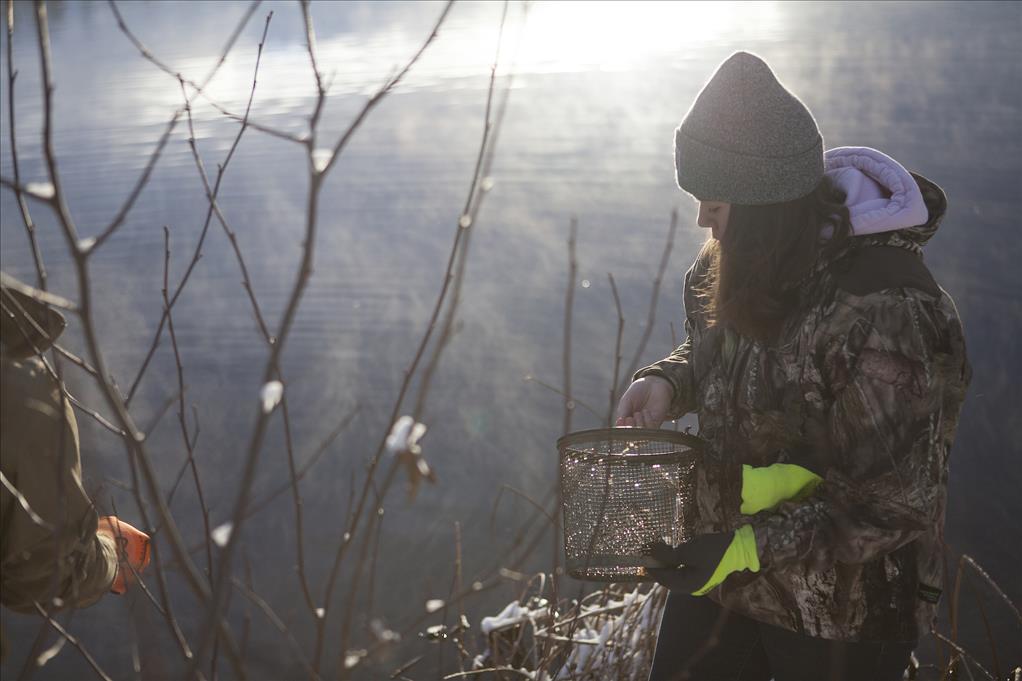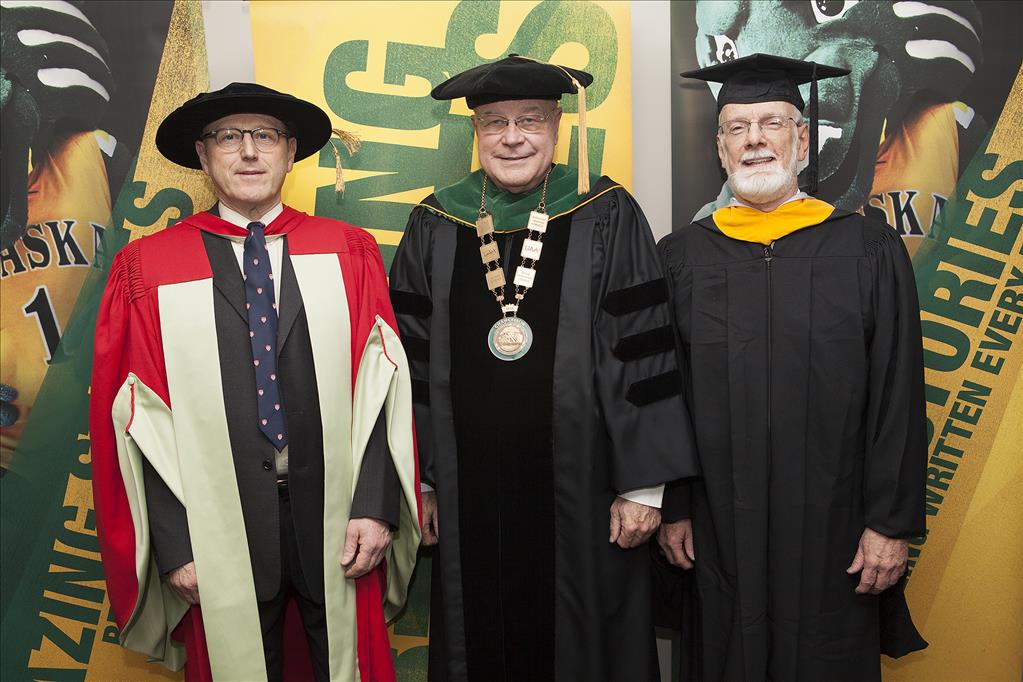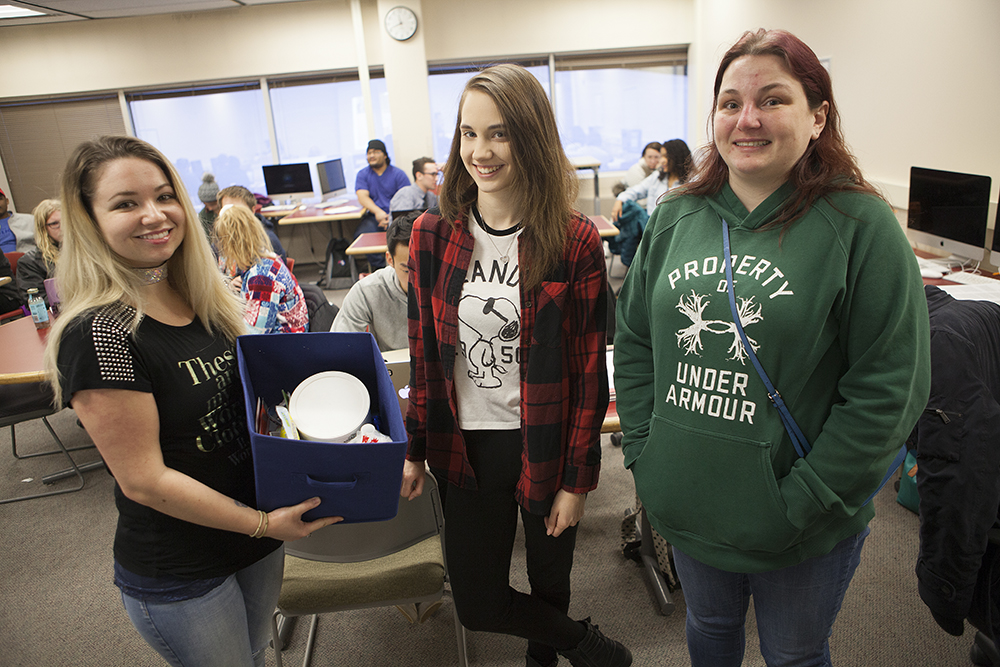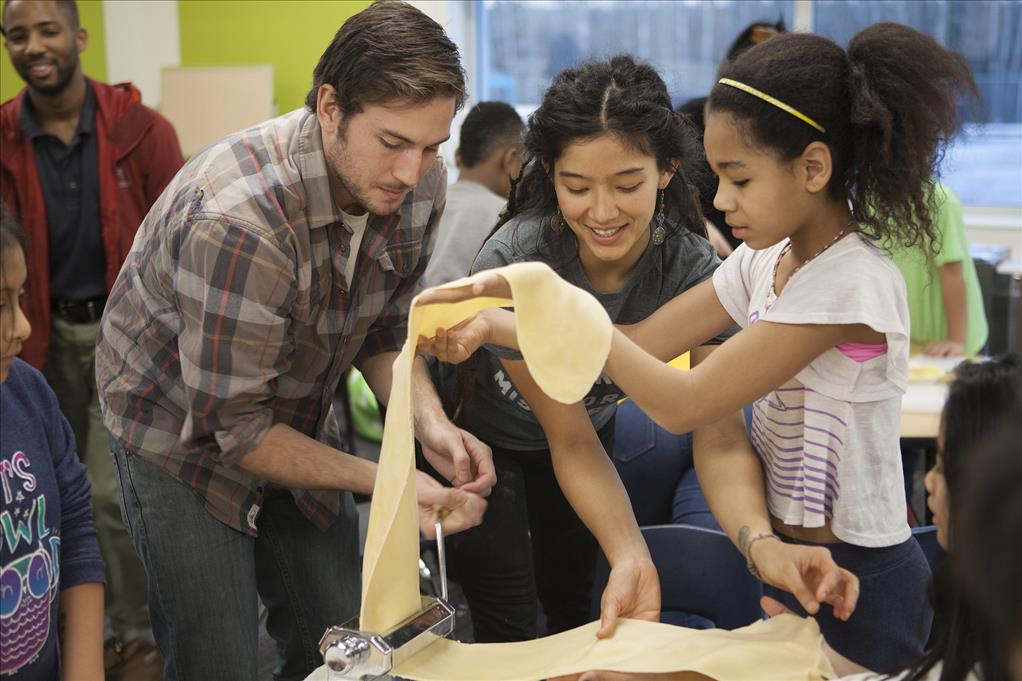Donated Alaska gowns elevate graduation ceremony in rural Moldova
by Joey Besl |
The centuries-old graduation ceremony-with its flat hats and shapeless smocks-has become an American staple of springtime. But, though significant for a moment, those Renaissance robes often end up in the back of a closet. Graduation garb just isn't something you casually wear on weekends.
Enter Mariana Braniste, an Anchorage resident here to rescue those robes from the back of your closet. Braniste grew up in a rural area of Moldova, where the graduation ceremony was only seen in imported movies and TV shows. But now, thanks to her dogged determination and the generosity of Anchorage residents, that's changing for students in her small hometown.
On July 3, Braniste's former school in Moldova held its first graduation ceremony, modeled after Braniste's own graduation from University of Alaska Anchorage in 2014. Students and teachers wore donated gowns to create what School Director Eugenia Anghelici called "the beginning of a beautiful tradition for our school and the entire village."

Mariana Bariste delivered 70 graduation gowns and 105 donated backpacks to her hometown of Hîrtopul-Mare, Moldova last summer. Her village held its first graduation ceremony on July 3. (Photo courtesy of Backpacks for Hope)
Braniste, who now works for Salvation Army Alaska, is nearly 5,000 miles from her hometown of Hîrtopul-Mare. The majority of the 7,000 residents back home are subsistence farmers-hard-working and low-earning, in a region with high unemployment. According to Braniste, that culture has a serious effect on education. "Parents, especially those economically disadvantaged, have this thought: Why should I send my child to university when he or she is not going to have a job after they graduate?" she noted. But in her eyes, graduation isn't just a nice gesture-it's an inspirational moment and an aspirational milestone.
"I believe that education is very important and education has changed my life," she said. "I want to provide an inspiration for those who were raised like me to continue their education." The best way to reach that goal, she decided, was to hold an American-style graduation ceremony in her hometown.
More specifically, she wanted to channel the energy she felt at her graduation from UAA, when she received a master's in public administration after four intense years. "Studying in a second language is not easy," laughed Braniste, who grew up speaking Romanian.
After long nights translating dense academic words into her textbook margins, graduation was a mighty milestone. "I don't even know how to describe it because it was so special," she said. "I was so inspired by the graduation ceremony ... I wanted to live it, and live it again. It was just one of those uplifting moments."
But rather than relive the experience, she decided to share the pomp and circumstance with her hometown, where graduation is more of a simple recognition than a glowing celebration.
As a first step, she mailed her UAA diploma to her high school in Moldova, where it hangs on the wall with her master's hood, which she had embroidered with names of her former teachers.
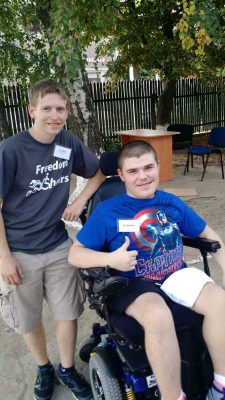
After hearing of Bariste's efforts, Tim Balz, left, founder of Indiana-based Freedom Wheels, donated a refurbished electric wheelchair so Ionut Balutel could return to the classroom. Balz and his father traveled to Hîrtopul-Mare last summer to meet Ionut and install a wheelchair ramp at the school. (photo courtesy of Tim Balz)
That was just the first of many gestures from abroad. In the past year, Braniste has raised $5,000 to build her community's first playground. She connected with Argentina Parasca, another Moldovan UAA graduate now based in Chicago, to coordinate the donation and delivery of 105 backpacks to Hîrtopul-Mare, which landed Braniste on Moldova's national news last summer. She and Argentina even secured a refurbished electric wheelchair from Indiana-based Freedom Wheels so a student with muscular dystrophy could return to the classroom (according to Braniste, many Moldovans keep disabled children out of school and away from peers). Tim Balz, founder of Freedom Wheels, even traveled to the village to install a wheelchair ramp at the school to combat the stigma of disability.
All these achievements are secondary offshoots, though, of her original plan. The dream all along has been to recreate her graduation ceremony for students at her former school. And gowns are a major signifier of that ceremony.
Braniste began collecting graduation gowns in spring of 2015, even waiting in the wings at UAA's ceremonies to ask fresh graduates to donate. Over Skype, phone and email, she helped school administrators plan for their American-style graduation. "In the last week, all the schoolteachers and directors had questions because they were afraid of doing something wrong," she laughed. "We went through all of the stages graduation takes at UAA. I was able to listen through the phone to some of the speeches. I recorded an inspirational video that was a message for the graduates."
The result? "The event was just a major success. The graduates were so excited," Braniste said of the response.
"It made me so proud of my child," said Natalia Rotaru, mother of a recent graduate. "I thought in my mind, what a wonderful way to celebrate your child's accomplishments. This was missing in our village."

What's graduation without the photo shoot? These three graduates sent this all-American shot to Mariana after the ceremony. (Image courtesy of Mariana Braniste)
"The community will remember this event for a long time," added Mayor Anatolie Delimarschi.
Ionut Balutel, who received the wheelchair, returned to school for the first time in years and graduated in the middle school ceremony. "This was the most beautiful day of my life," he told Braniste in a letter after the ceremony. "I could not sleep the night after."
"I'm just so glad that this came to reality," Braniste noted. "Now that it's passed, I can't believe that it happened in my village. It was hard work collecting 70 gowns and sending them home, but it was so worth it."
Braniste is already seeing a change in attitude in the post-communist country. For one, Ionut became a local celebrity after the national news covered his electric wheelchair. "More parents are taking their children with disabilities to school. It's a movement," Braniste said. "Argentina and I are so proud.
"This was nothing, but in a year everything connected and bloomed. It's amazing. I just want to thank everyone for believing in my project and my dream."
You can help support Braniste's next dream-holding a graduation in Hîrtopul-Mare's neighboring village-by donating gowns at the UAA Alumni Center in the UAA/APU Consortium Library.
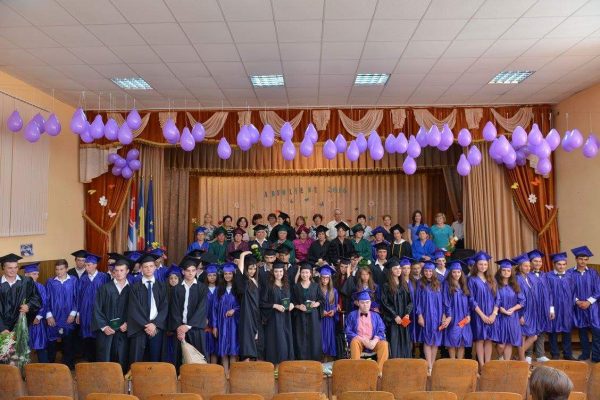
Graduation at Liceul Teoretic Hirtopul Mic this July, thanks to Alaska donations from nearly 5,000 air miles away (Photo courtesy of Mariana Braniste).
Written by J. Besl, UAA Office of University Advancement
 "Donated Alaska gowns elevate graduation ceremony in rural Moldova" is licensed under a Creative Commons Attribution-NonCommercial 4.0 International License.
"Donated Alaska gowns elevate graduation ceremony in rural Moldova" is licensed under a Creative Commons Attribution-NonCommercial 4.0 International License.










